
Grand firework displays, giant screens and chartered helicopters -- leading contenders in Madagascar's elections on Wednesday have been battling to outdo each other with extravagant campaigning in stark contrast to the deep poverty of voters.
In the capital Antananarivo, former president Andry Rajoelina flies to his campaign headquarters, which is also his television station, in a helicopter.
Hery Rajaonarimampianina, who is hoping to retain power, draws big music stars to his rallies where on Sunday a drone captured the mood and relayed live visuals.
Likewise, millionaire former president Marc Ravalomanana showed off in similar style during a rally at Mahamasina stadium in Antananarivo which featured a giant inflatable zeppelin displaying his portrait.
Former party organiser Rajoelina, exhibits a little more opulence at his rallies. He steps on stage doling out promises backed by videos clips on giant screens, topped off with blaring music and fireworks.
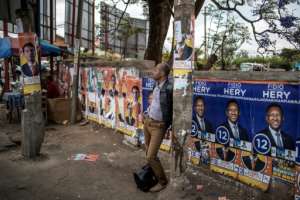 Electoral posters are seen at a bus stop in Antananarivo on November 6, 2018, on the eve of in the first round of the presidential elections. By MARCO LONGARI (AFP)
Electoral posters are seen at a bus stop in Antananarivo on November 6, 2018, on the eve of in the first round of the presidential elections. By MARCO LONGARI (AFP) Avoiding atrociously bad roads that are characteristic of the country, the three frontrunners in Wednesday's election have criss-crossed the large Indian Ocean island in helicopters and flooded cities and villages with their campaign t-shirts and other paraphernalia.
The three have all ruled over the island nation, which has been progressively been getting poorer since independence from France in 1960, according to researchers.
Madagascar is now ranked among one of the world's poorest nations, but elections campaigns in the country are expensive and extravagant.
World's most costly campaign?
A European Union-sponsored study in 2016 found that Rajaonarimampianina blew $43 million (37.7 million euros) on his campaign for the 2013 election, translating to $21.50 per each vote he got, making it by far the most expensive campaign globally.
He spent nearly twice as much as US President Donald Trump on each voter who cast ballots for him, according to the study.
The budgets for this year's campaign have been "shocking", said the head of the EU observer team Cristian Preda.
Leasing a helicopter costs several thousand dollars a day, according to Transparency International in Madagascar (TIIM).
The trio, who are leading the pack of 36 candidates in the race, have been discreet with their campaign budgets.
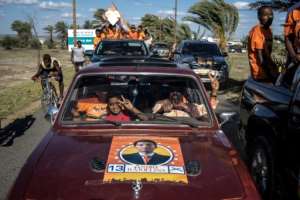 Supporters of Madagascar presidential candidate Andry Rajoelina attend a campaign rally campaign rally on November 4, 2018. If none of the candidates gets more than 50 percent of the votes cast, a second round will be held on December 19. By MARCO LONGARI (AFP)
Supporters of Madagascar presidential candidate Andry Rajoelina attend a campaign rally campaign rally on November 4, 2018. If none of the candidates gets more than 50 percent of the votes cast, a second round will be held on December 19. By MARCO LONGARI (AFP) One of the candidates had the audacity to complain "that he was short of $100 million to win," said Preda.
Civic groups Rony and TIIM have jointly deplored "the indecency of deploying massive resources by some candidates in the face of poverty".
There is no limit to how much finance a candidate can spend on election campaigns in Madagascar.
"What is scandalous is that we do not know where the money comes from," said Transparency International's country boss Ketakandriana Rafitoson, in a country plagued with corruption.
Only six "small" of candidates out of the 36 have responded to a civil society survey on the source of their funding.
"It confirms our conviction about the opacity of the campaign," said Rafitoson.
'Poor because of politicians'
Rajoelina has promised to open up about his political finances only after campaigning is over.
"I will obviously submit the documents on my campaign funding," he told AFP.
Ravalomanana says he didn't pay for helicopters, which belong to a "friend" in South Africa.
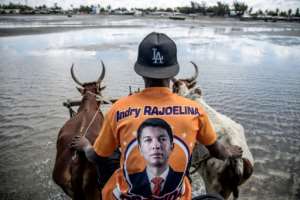 A driver of an oxen-pulled cart wears a t-shirt of the Madagascar presidential candidate Andry Rajoelina while ferrying tourists from the boat into the port in Tulear, on November 4, 2018. By MARCO LONGARI (AFP)
A driver of an oxen-pulled cart wears a t-shirt of the Madagascar presidential candidate Andry Rajoelina while ferrying tourists from the boat into the port in Tulear, on November 4, 2018. By MARCO LONGARI (AFP) "I ran a campaign that is in standing with my image and is reasonable vis-a-vis the population," said Rajaonarimampianina.
In a poor neighbourhood of the capital, and with indignation, voter Jimmy Ramaherison complained saying "it's shocking that they spend so much, they do not even look at us".
"If we are the poorest country in the world, it's because of these people," said a frustrated Ny Rado Rafalimanana, a fringe candidate.
During one of his final rallies at the weekend in the southwestern city of Toliara where many residents rely on oil lamps for lighting, Rajoelina promises to build an Olympic-sized swimming pool as computer-generated images of a pool were flashed on a giant screen.
Fireworks lit up the sky in the country where only about 13 percent of its population has access to electricity.
"We are living in darkness right now, I am here to bring back the light," Andry Rajoelina told AFP.
Madagascar in 2017 had per capita GDP of $449, according to the World Bank.
With an extreme poverty rate of 76.2 percent, it relies mainly on international aid and has the sixth highest rate of malnutrition in the world.
Read Full Story

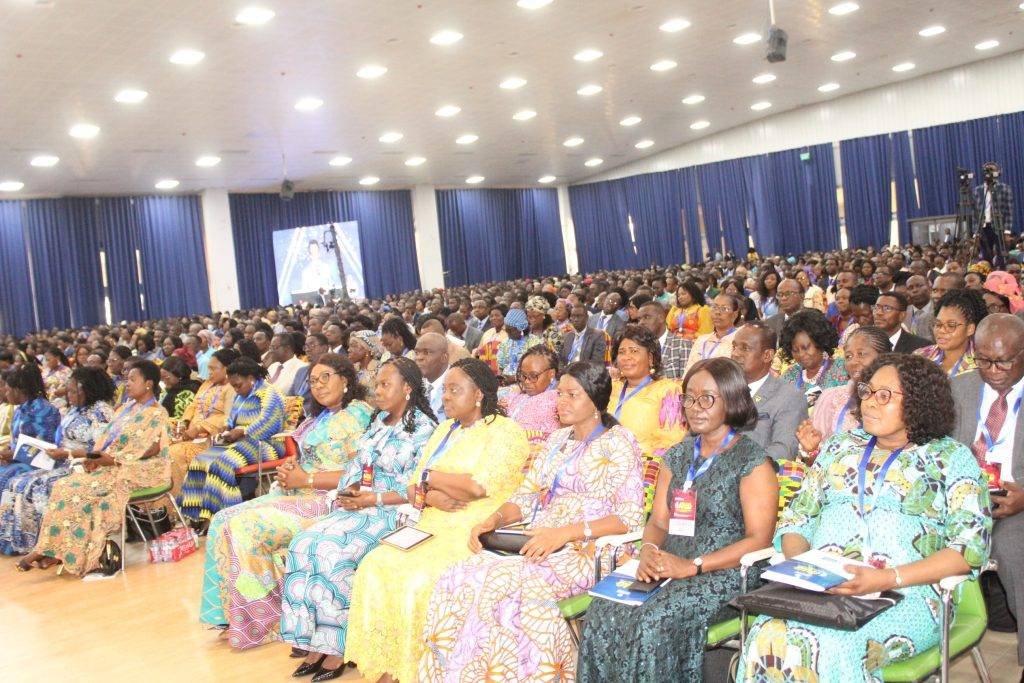
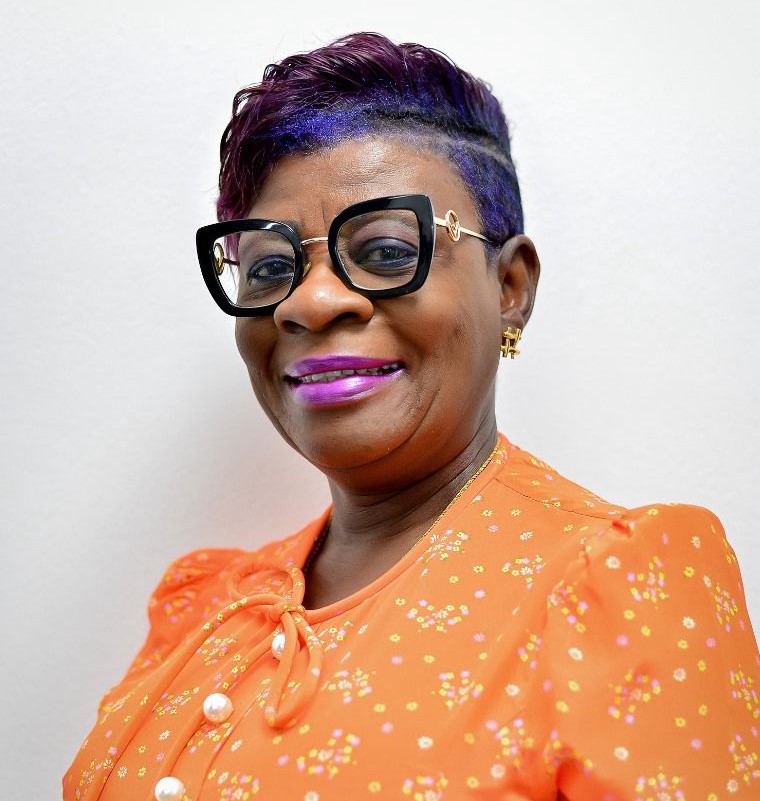


















Facebook
Twitter
Pinterest
Instagram
Google+
YouTube
LinkedIn
RSS